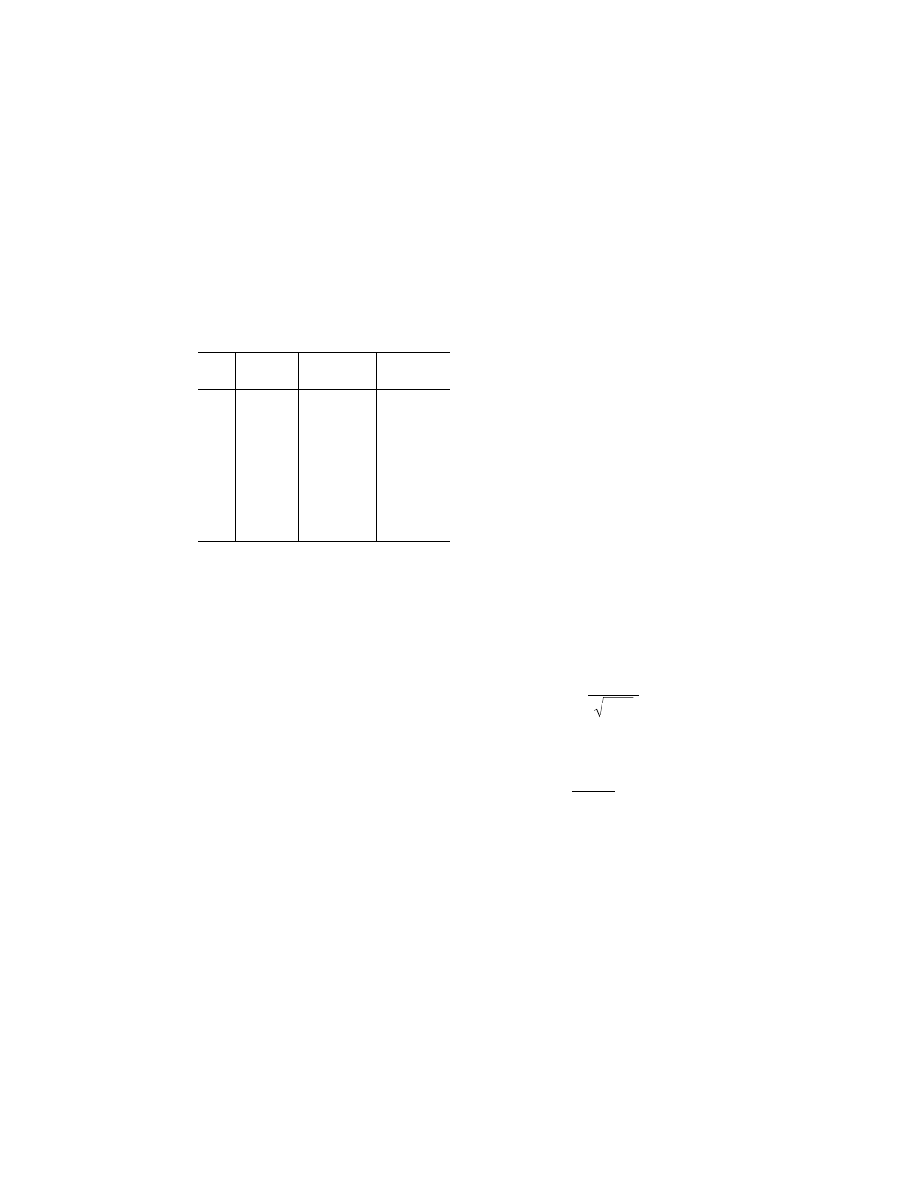
209
Federal Aviation Administration, DOT
§ 25.103
(2) For reciprocating engine powered
airplanes, a relative humidity of 80 per-
cent in a standard atmosphere. Engine
power corrections for vapor pressure
must be made in accordance with the
following table:
Altitude
H
(
ft.
)
Vapor
pressure
e
(In. Hg.)
Specific humidity
w
(Lb. moisture
per lb. dry air)
Density ratio
r
/
s
=
0.0023769
0 0.403 0.00849 0.99508
1,000 .354 .00773 .96672
2,000 .311 .00703 .93895
3,000 .272 .00638 .91178
4,000 .238 .00578 .88514
5,000 .207 .00523 .85910
6,000 .1805
.00472
.83361
7,000 .1566
.00425
.80870
8,000 .1356
.00382
.78434
9,000 .1172
.00343
.76053
10,000 .1010
.00307
.73722
15,000 .0463 .001710
.62868
20,000 .01978
.000896
.53263
25,000 .00778
.000436
.44806
(c) The performance must correspond
to the propulsive thrust available
under the particular ambient atmos-
pheric conditions, the particular flight
condition, and the relative humidity
specified in paragraph (b) of this sec-
tion. The available propulsive thrust
must correspond to engine power or
thrust, not exceeding the approved
power or thrust less—
(1) Installation losses; and
(2) The power or equivalent thrust
absorbed by the accessories and serv-
ices appropriate to the particular am-
bient atmospheric conditions and the
particular flight condition.
(d) Unless otherwise prescribed, the
applicant must select the takeoff, en
route, approach, and landing configura-
tions for the airplane.
(e) The airplane configurations may
vary with weight, altitude, and tem-
perature, to the extent they are com-
patible with the operating procedures
required by paragraph (f) of this sec-
tion.
(f) Unless otherwise prescribed, in de-
termining the accelerate-stop dis-
tances, takeoff flight paths, takeoff
distances, and landing distances,
changes in the airplane’s configura-
tion, speed, power, and thrust, must be
made in accordance with procedures es-
tablished by the applicant for oper-
ation in service.
(g) Procedures for the execution of
balked landings and missed approaches
associated with the conditions pre-
scribed in §§ 25.119 and 25.121(d) must be
established.
(h) The procedures established under
paragraphs (f) and (g) of this section
must—
(1) Be able to be consistently exe-
cuted in service by crews of average
skill;
(2) Use methods or devices that are
safe and reliable; and
(3) Include allowance for any time
delays, in the execution of the proce-
dures, that may reasonably be expected
in service.
(i) The accelerate-stop and landing
distances prescribed in §§ 25.109 and
25.125, respectively, must be deter-
mined with all the airplane wheel
brake assemblies at the fully worn
limit of their allowable wear range.
[Doc. No. 5066, 29 FR 18291, Dec. 24, 1964, as
amended by Amdt. 25–38, 41 FR 55466, Dec. 20,
1976; Amdt. 25–92, 63 FR 8318, Feb. 18, 1998]
§ 25.103
Stall speed.
(a) The reference stall speed, V
SR
, is a
calibrated airspeed defined by the ap-
plicant. V
SR
may not be less than a 1-g
stall speed. V
SR
is expressed as:
V
V
SR
CL
≥
MAX
n
ZW
where:
V
CL
MAX
= Calibrated airspeed obtained when
the load factor-corrected lift coefficient
n
W
qS
ZW
is first a maximum during the maneuver
prescribed in paragraph (c) of this section. In
addition, when the maneuver is limited by a
device that abruptly pushes the nose down at
a selected angle of attack (e.g., a stick push-
er), V
CL
MAX
may not be less than the speed ex-
isting at the instant the device operates;
n
ZW
= Load factor normal to the flight path
at V
CL
MAX
W = Airplane gross weight;
S = Aerodynamic reference wing area; and
q = Dynamic pressure.
(b) V
CLMAX
is determined with:
(1) Engines idling, or, if that result-
ant thrust causes an appreciable de-
crease in stall speed, not more than
zero thrust at the stall speed;
(2) Propeller pitch controls (if appli-
cable) in the takeoff position;
VerDate Sep<11>2014
12:50 Apr 30, 2019
Jkt 247046
PO 00000
Frm 00219
Fmt 8010
Sfmt 8010
Y:\SGML\247046.XXX
247046
ER26NO02.001</MATH>
ER26NO02.002</MATH>
spaschal on DSK3GDR082PROD with CFR